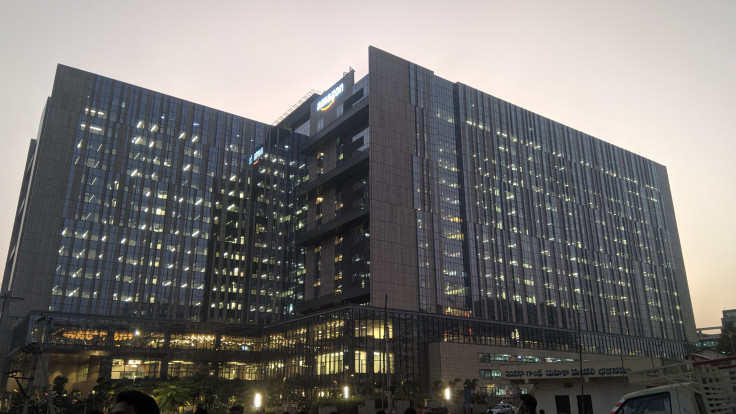'Unbearable': Amazon India Workers Allegedly Forced to Labour in 50°C Heat Without Water or Breaks

Amazon is once again under fire in India after a survey alleged that workers are being forced to labour in unbearable 50°C heat without water or rest breaks.
One year after the country's Human Rights Commission called for an inquiry into warehouse conditions, the latest findings suggest little has changed for staff at the e-commerce giant's facilities.
Survey Reveals Widespread Suffering
The findings are based on a survey conducted by UNI Global Union in June and July 2025, which involved 474 Amazon warehouse and delivery workers across India. The results paint a disturbing picture of persistent heat-related illness, lack of medical support, and retaliation against those who speak out.
The results show a grim picture:
- a) 58% of respondents described their workplaces as either 'extremely hot and unsafe' or 'felt like an oven.'
- b) 68% reported feeling sick, dizzy, or faint due to heat exposure.
- c) 75% said they or a coworker required medical attention for heat-related illness.
- d) Only 7% were given extra breaks during extreme heat.
- e) 16% received no cooling measures at all.
- f) 42% feared reprisal for raising safety concerns.
These figures suggest that despite public scrutiny and regulatory pressure, Amazon India has made little progress in protecting its workers from dangerous heat conditions.
Workers Share First-Hand Accounts
The survey includes harrowing testimonies from workers across multiple states. A packing worker in Haryana reported: 'Many times, due to extreme heat, I got fungus on my body and serious problems.'
A warehouse employee in Patna said, 'Sometimes, because of heat, I suffered dehydration.' Delivery workers in Delhi described symptoms including vomiting, body pain, and burning sensations.
One respondent stated: 'Because of [the] heat, I felt nauseous, vomited, and my whole body burned.' Another added: 'Due to the heat, I felt dizzy and had dehydration.'
These accounts reflect the physical toll of working in high temperatures without adequate cooling, hydration, or rest.
A Year After the Heatwave, Little Has Changed

In 2024, India's Human Rights Commission urged the government to investigate reports that Amazon warehouse workers were compelled to forgo breaks, including to drink water, during a record-breaking heatwave. Temperatures reached 50°C in parts of northern India, prompting widespread concern over worker safety.
'The 2024 heatwave was a warning, and one year later our survey shows little has changed,' said Christy Hoffman, General Secretary of UNI Global Union. 'No worker should be forced to risk their health—or their life—for Amazon's bottom line. Heat protections must be enforceable, and workers themselves must have a say in setting the standards.'
Calls for Enforceable Heat-Safety Standards
UNI Global Union and its Amazon Global Union Alliance are now demanding enforceable heat-safety measures across Amazon's Indian operations. Their recommendations include:
- a) Realistic productivity quotas that take into account heat stress.
- b) Guaranteed cooling breaks during high-temperature periods.
- c) Access to air-conditioned rest areas and hydration stations.
- d) Strong protections against retaliation for raising safety concerns.
The union argues that voluntary measures are insufficient and that regulatory oversight is needed to ensure compliance. They also call for Amazon to engage directly with workers and unions to co-develop safety protocols.
Amazon's Global Scrutiny Intensifies
The revelations in India come amid growing global scrutiny of Amazon's labour practices. The company has faced criticism in the United States, Europe, and Latin America over warehouse conditions, surveillance, and anti-union tactics. In India, where summer temperatures routinely exceed 40°C, the lack of heat protection poses a unique and urgent threat.
Amazon has not yet responded to the latest survey. In earlier statements, the company maintained it complies with local labour laws and prioritises worker safety. However, persistent reports of illness and punishment for complaints suggest a gap between corporate assurances and the reality faced by workers.
© Copyright IBTimes 2025. All rights reserved.





















